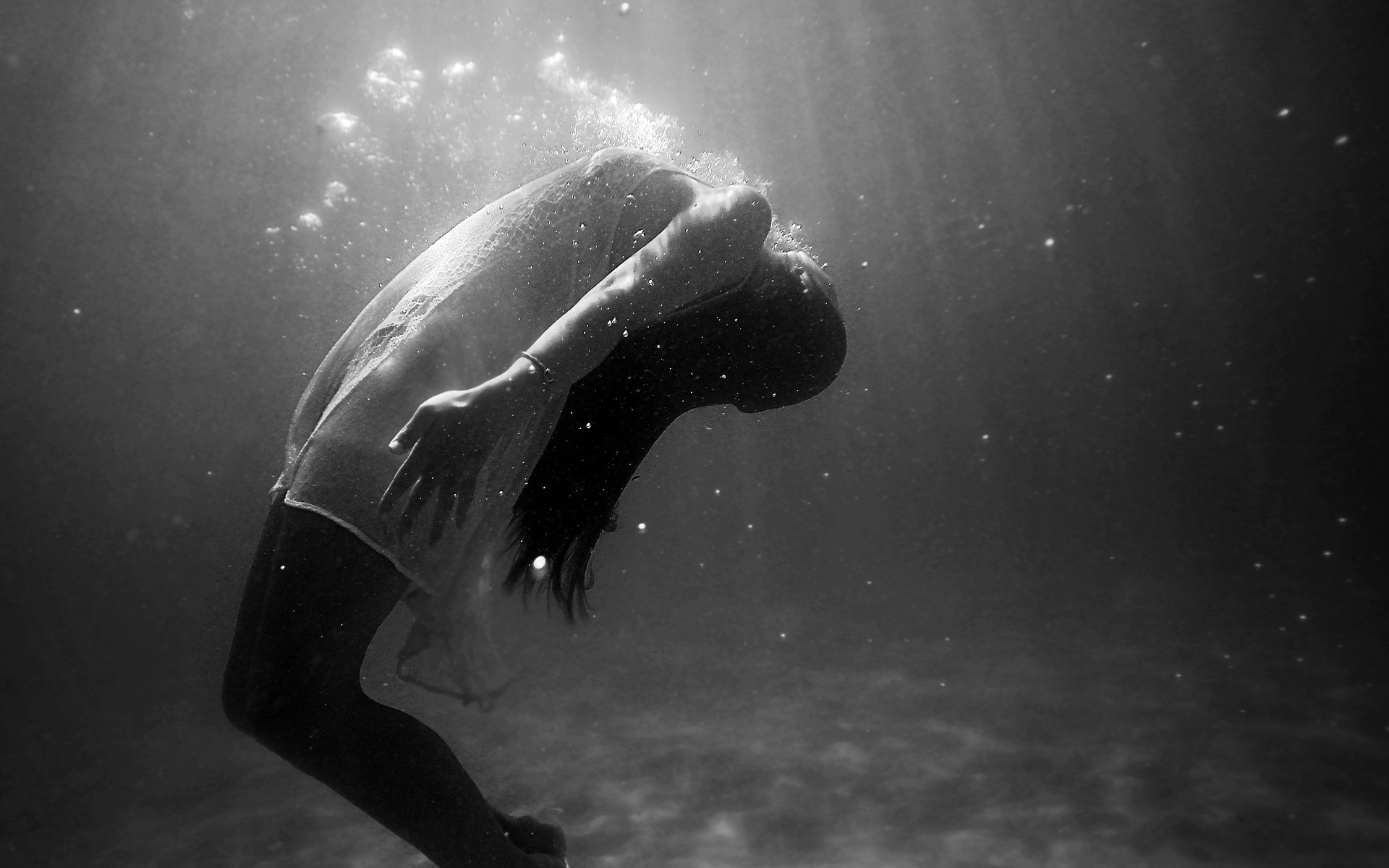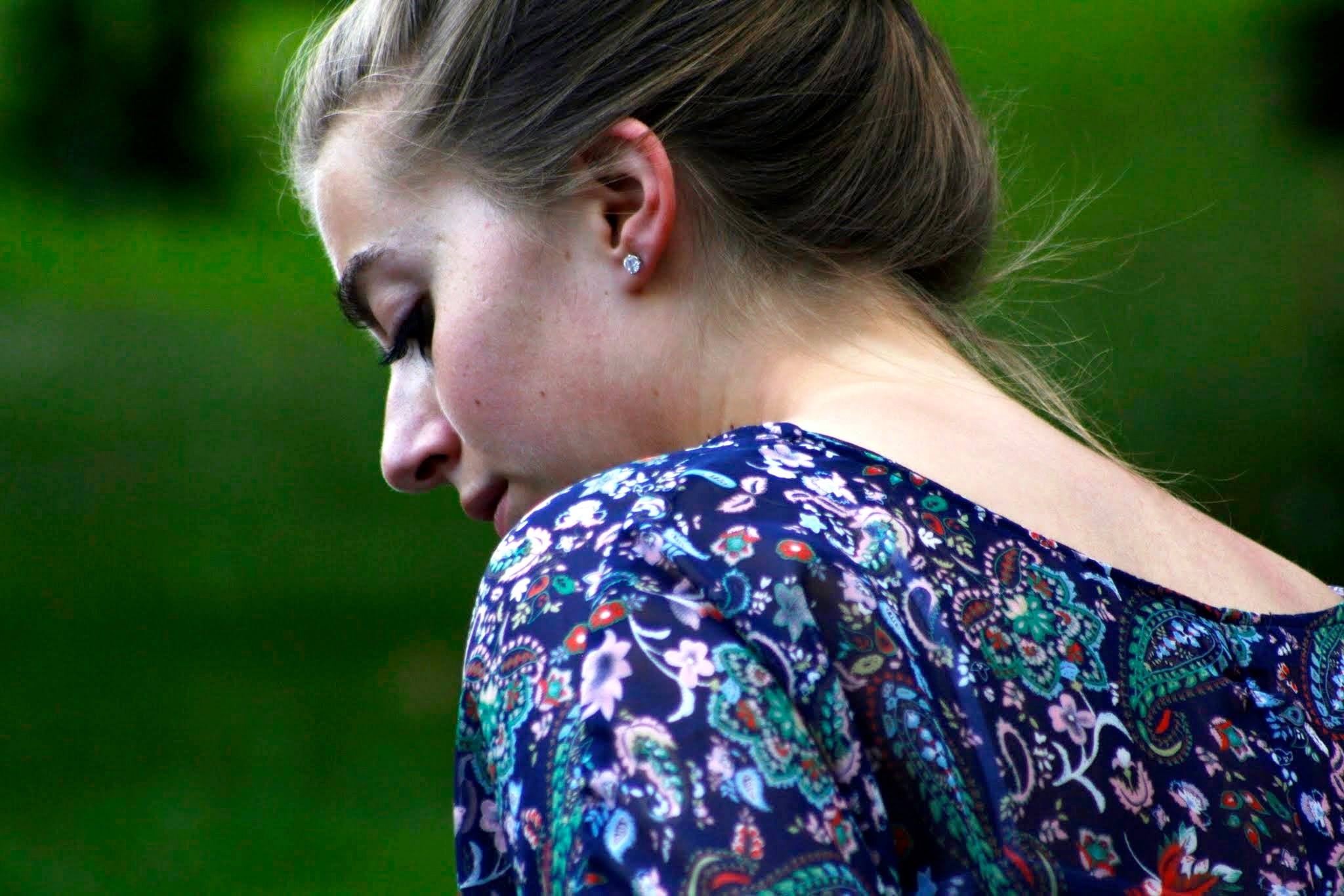Emergency Preparedness
Lizzie Martin
These are the ways the world ends: biological weapons, gene mutations, epidemics, plagues. Blisters and blood and vomit and pus, horrible oozing words. The way you shiver under the sweat of a fever. Or something nuclear. An accident, a war between two nuclear weapons states, a random and unprovoked and long-dreaded attack from a state that wasn’t supposed to have any nukes. Terrorism. Fallout. The sun snuffed out, slowly at first and then all at once, by rising clouds of smoke, bubbling like boiling water. The way the chemicals in the air change the climate, and the crops die, and we all starve to death.
There were students who survived the fission bomb dropped on Japan, but the flash burns on their hands healed too tight, bending fingers to claws.
These are the ways: a broken vial, a refrigerator unplugged, an envelope opened. Fires we started, nightmares we invented, invitations we mailed to ourselves.
I run down the list until it’s too long to keep count, roll over to make sure the BlackBerry plugged into the wall isn’t blinking with an unread email heralding one of these disasters or something else, then start again at the top. There was a time when it seemed possible to fight the images, maybe possible to believe they were improbable, maybe even possible to game out a scenario wherein things would turn out all right even if some little portable nuclear device did get lost or stolen or mailed to a Congressperson. There was a time when I was able to do that thing all the meditation podcasts recommend, picturing each image of inevitable death and destruction, worldwide, that my brain kept offering up as a leaf on the surface of a river, floating by while I rest on the bottom, a stone on the riverbed, undisturbed by the current. But I’m not a stone under the current, I don’t have anything in common with a stone under the current, and I can’t at all imagine lying still under the current, watching things float by, because I am, if anything, absolutely also floating on whatever metaphorical river this is, uncontrollably, whirled in the same ebbs and flows as all the figurative leaves of all the possible disasters and all the unpredictable crises and everything else that could happen at any moment with no warning at the whims of whatever the metaphorical river is supposed to be.
At one point, I tried affirmative mantras on sticky notes, leaving them on the bathroom mirror. But even after weeks — okay, after days — of repeating them each morning, mouth full of toothpaste, they didn’t take. Instead, other phrases stayed front of mind, rhythmic, an endless spoken-word poem authored by my subconscious, which isn’t hostile, necessarily, just disappointed. Probably it had expected more from me, somehow.
I am treading water.
I am killing time.
This is a holding pattern.
The nosebleeds started four months in.
I got the job because of a college internship, and for the new ID, they pulled the same photo of me as an undergrad, stuck in the system somehow, ponytail high, lips glossy, chin titled with optimistic ambition. The guards at the door sometimes took cartoonish double takes. You’ve cut your hair or something, they’d say, you’re unrecognizable. Did you lose weight?
Not really, no, but I did set fire to everything that the college ID-badge version of me had held dear. I’m still amazed by how fast it all burned. There wasn’t a lot of smoke, no smoldering embers. Everything gone, just like that. It makes me wonder if I’d overestimated it all, somehow. Had it all been ash to begin with.
There wasn’t any problem with it, not really. Not at all from the outside looking in, certainly. The grad program was fine, great, even. I found it really interesting, everything very worth thinking about. There were other people who loved it, though, actually loved it, people who really came alive running regressions or doing mock press conferences. And there were other people who felt it mattered deeply, like one who would pull out clumps of hair during exams, and another who’d spend the night in the library working on a problem set and then drink Diet Coke in 9 a.m. econometrics class, still rubbing sleep from dry contact lenses. I couldn’t muster that kind of passion, or ambition, or fear. I couldn’t muster much of anything, to be honest.
There was also the fiancé, who was also completely fine. More than fine, possibly. Everyone had been delighted. There were good parts: warm hands, warm eyes, a good singing voice, a habit of calling me beautiful, as in, “Hi, Beautiful,” which was flattering and surprising, and a tradition of leaving peanut butter cups and poems or song lyrics folded into paper cranes on my windowsill. When we graduated from college and I went to grad school and the by-then-fiancé took a job with a start-up three time zones away, I’d get text messages every morning to say good morning and every night to say sweet dreams, even when I had been dreaming for hours: Sorry to wake you up, but you should know that I love you. It was comforting, until it wasn’t. The cell phone, humming in class, in the library, during parties that we probably would have disapproved of in college, disapproved of or felt superior to, or both. There were emails and links to articles piling up unread in my inbox, and there were voicemails about what it was like to have an entry-level job that wasn’t great but it was a foot in the door and everyone had to pay their dues, right? What did I think, beautiful? Was I free tomorrow for a video call? If not, there’d be another voicemail outlining in goodnatured, well-intentioned, sweet and dear and lovely detail the specifics of a day that was really very much like the day before, starting with which kind of coffee the Ambiance Team at the start-up, the name of which I still honestly can’t remember, had put out that morning, which made me a little anxious, environmentally speaking, because between the coffee grounds and the probably styrofoam — who is still making all this styrofoam, I always wonder, where is it being produced and how do they sleep at night — and the little plastic pods that seem really very unlikely to be recyclable, there seemed to be an awful lot of waste being produced just so a bunch of post-grads with job titles that were way more jargon than substance could have something to drink — or, more accurately, something to do — when they got to the office. To the Collaboration Portal. I felt guilty deleting the voicemails, but they rarely ended with any kind of call to action, much less a question. They were all content, all excitement and noise, all subject and verb. I was the direct object, but was that all, and was it enough, or too much, or what.
I am treading water.
At the end of the first year, I started having dreams about losing my teeth, about wriggling out from under the covers of my bed on the first floor and swinging myself out the window into the flower bed below, crawling in the soggy mulch outside the dorm, digging for them in the soil, mouth sore. I would wake up with my jaw aching, fingers still curling in half sleep.
I am killing time.
When I told the administration, they were very kind about the whole thing.
“Requesting a leave of absence.” I nodded. The career counselor, Karen, was unconditionally patient and chronically optimistic. Karen made all the calls, Karen sent around revised versions of the same resume, Karen drafted the email accepting the full-time iteration of the job I had done as an intern. The only moving thing in the cover letter was a sentence about how growing up in post-9/11 America made international security serious and personal, how reading about dirty bombs and border control brought to life both me in the present and me in the past, eleven years old, cheeks still round, hair knotted in a Dutch braid, pulling gel pens from a locker in the hallway when Mrs. Moore told us that our parents would be there to get us soon. There were dozens of hours of news coverage; the Towers had seemed to fall hundreds of times; I grew up watching my country snap shut around itself. It was a compelling and not insincere note to hit, and I appreciated Karen’s compassion and ingenuity in writing it. And who knew, maybe outside a lecture hall, out in the real world, it might be possible to wake up with that sense of urgency, instead of this constant sort of vague dread.
This is a holding pattern.
Emergency Preparedness Plan Coordinator. There is some irony there, probably, or something similar to irony. Whatever it is people are noticing when they say something is ironic that isn’t, not technically. I have never made emergency plans, am rarely prepared, and ran into both an automatic door and a coatrack on my first day, fortunately not at the same time, illustrating a real lack of coordination.
The plans don’t make me feel more prepared. They just illuminate previously unimagined emergencies. Every night, I lie awake, paging through an imaginary version of the filing cabinet in the safe in my office of all the things that could go wrong. I try to tug mentally at images of the emergency centers that would spring up, the mechanisms and funding and specialists that would click into action, a lock turning. A clock, inching forward. I get water from the kitchen in the dark, eyes burning. A breathing exercise, air into the belly, then the chest, then out, for a count of eight. A different breathing exercise, through the back of the throat like the sound of the ocean in a seashell. A new, more vivid crisis with every breath, and eventually, my alarm will ring, and I will get dressed in the dark and walk to the bus stop in the dark and start work in the dark and coordinate emergency plans all day, fueled mostly by coffee and granola bars, until it gets dark again, when I’ll take the bus home and eat something and lie down and start the list again from the top.
By the second month, I was getting tension headaches, and in the third, a cramp high in my right shoulder. In the fourth, stress nosebleeds.
My office director expressed concern, recommending an HR-sponsored yoga class.
“Take a moment to be present,” the instructor says, and I smell lavender and look around at the other people here: a very pregnant accountant in spandex, two interns with matching French braids and tie-dyed t-shirts, and someone from legal still wearing suit pants with an undershirt. We all close our eyes in unison, breathing audibly. The marble floor is cold through my mat. We do some neck rolls, then sun salutations I remember trying in a yoga class in college. This is all very regressive, I think. Everything a return to something I did first when I was nineteen.
As if on cue, the phone on the corner of my mat buzzes with a text, from my fiancé. Ex-fiancé. They’ve been piling up for days, the notification count rising higher and higher. I reach over and flip the phone off the mat, wobbling half out of downward-facing dog.
That night, I dream the world is ending. I’m back in grad school, taking an exam. Outside the window, an explosion unfolds, mushroom cloud blooming overhead. No one else in the classroom looks up. No one turns. I point wordlessly to the smoke, curling toward us in spirals. The scratching of pencils in test books continues rhythmically. The room grows dark. I try to stand, try to speak, but all I can do is flip the pages of the exam. I wake up gasping for air, and it takes a minute for the room to look familiar in the dark.
The letter arrives in one of our inter-departmental envelopes, my name lettered neatly in all-caps with no return label, immediately suspicious. I hold it up to the light, can’t see anything inside. When I shake it, there seems to be something sifting around.
I vaguely remember a PowerPoint from one of my security classes, the edges of a map of DC spilling over with an outline of the fallout from two kinds of attacks: nuclear and biological. The anthrax spores sprawled across the borders, the map smoldering red-orange. The nuclear attack was violent and horrifying, sure, completely unimaginable, but the anthrax spread further, killed more. Exponentially, I think. My hands shake. The envelope rattles, menacing.
Other than that diagram, I have no idea how anthrax works. Google is no help, and at any rate, it probably wasn’t a good idea to have plugged the question “how does anthrax work” into a government computer. I wipe sweaty palms on the sleeves of a tweed thrift store blazer, roll up the sleeves, roll them back down.
It was the envelope that did it last time too. Sitting on the edge of the extra-long twin size bed in that dorm room, holding the sample invitation from the calligrapher.
“Requesting your presence.” I couldn’t breathe. My fiancé had proposed at my birthday dinner the year before, like it was a gift. I got a nosebleed immediately, had a nightmare that night of opening a present that turned out to be a box of spiders, millions of them, pouring out in steady streams of too-fast legs and seed-bead bodies. Calling it off had been easier than saying yes.
I wrap the suspicious envelope in a plastic bag, then put the whole package in the safe. Is this what I am supposed to do? Isn’t someone else in charge of this kind of thing? Who put me in charge of all these things?
I dream of a gas mask, its elastic band tight over my ears.
The next morning, my office director peers over the edge of my cubicle and asks how it’s going. I say it’s fine, everything’s fine, and smile weakly. No need to scare anyone unnecessarily.
Deep breath. Unlock the safe, heart beating louder with each click of the combination, one sound or the other reverberating through the office, around the building, probably across town. Surely it’s nothing, probably it’s nothing. Don’t say anything to anyone, what if it’s nothing. I have a strange, brief pang of homesickness for how things had been before, of sitting at a desk while a professor wrote what mattered on a blackboard. Of the soft buzz of a text message, a reminder of love, of lovability. Is this the end of all of that, will it never happen again, have I made irreparable mistakes?
The plastic bag is sticky, the envelope heavier than yesterday, somehow. I take a deep breath and hold it. Listen to make sure the office is empty, everyone else getting coffee from the cafeteria downstairs, just in case. This can’t possibly be precaution enough, but maybe I’m worried for nothing, and anyway, what else can I do.
I have to breathe out and in again, distracted by internal chastisement for doing this all wrong, for being as unprepared as ever, for not doing more research, for not having the right plan. Holding my breath for real this time, I slide my right thumb under the seal of the envelope.
“Requesting your presence.” A greeting card spills a pile of confetti onto the computer keyboard. It’s an invitation to a happy hour in my honor, celebrating six months of working in the office. “We’re so glad you’re here!” my Office Director had written. “Join us for drinks and donuts in my office on Friday at 4.”
On the way home that afternoon, I try a mindfulness exercise from the yoga class, listening for sounds incrementally farther and farther away, until they’re definitely invented. The breath of the people on the bus, the wheels spinning under the bus. The horn and the brakes of a cab making a last-minute turn, and the horn and the brakes of the car it turned in front of. The music in all the earbuds of all the commuters on the bus and all the commuters outside the bus. The shuffling of all the papers in all the buildings on the blocks we pass, all the fingers on the keyboards, all the fingers in all the dikes trying to prevent all the crises waiting to spill over. The lapping of the Potomac, of an adjacent ocean, of all the other oceans everywhere else. The crinkling at the edges of the atmosphere. The hum of the world spinning on its axis. The crackling of stars burning, the pops as they spark out. I am small, everything is small, flames can be lit and extinguished and fanned back to life. Tonight, I will dream about a party on a riverbank, and we will jump in wearing cutoff shorts, set candles in paper bowls and let them float by, flames flickering, reflected in the current. The water will be cool. The surface will be clear and dark, rippled with light, dancing. I will be treading water.
Listen to the author read from “Emergency Preparedness”:
Provenance: Submission.
 Lizzie Martin lives in Washington, DC.
Lizzie Martin lives in Washington, DC.
Image by Unsplash is licensed by CC0 Public Domain.


No Comments